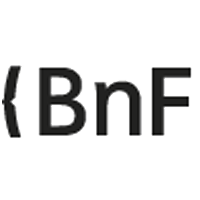Internet, http://en.wikipedia.org/wiki/John_Tirman, 2014-05-23
Information trouvée : 1949
Terror, insurgency, and the state, ending protracted conflicts / edited by Marianne
Heiberg, Brendan O'Leary, and John Tirman, cop. 2007
Information trouvée : Théoricien en sciences politiques et spécialiste des relations internationales
Wikipedia, 2022-08-29
Information trouvée : John Tirman (December 13, 1949 – August 19, 2022) was an American political theorist.
From 2004, Tirman was executive director and principal research scientist at the MIT
Center for International Studies. Tirman worked at Time magazine and the Union of
Concerned Scientists (UCS). It was at UCS where he began to work on international
security issues, mentored by Henry W. Kendall, the chair of UCS and a professor of
physics at MIT; Kendall later was co-recipient of the Nobel Prize in physics. Tirman
edited two books on "star wars", the strategic defense initiative started by President
Ronald Reagan; one of them, The Fallacy of Star Wars (Vintage, 1984), was the first
important critique of strategic defense, and brought together leading scientists like
Kendall, Hans Bethe, Victor Weisskopf, and Richard Garwin, among others. Returning
from Cyprus, Tirman was appointed Program Director at the Social Science Research
Council, a leading academic think tank, in New York in 2000. He headed the Program
on Global Security and Cooperation with colleague Itty Abraham. In 2001 he opened
a Washington, D.C. office for SSRC. He moved to MIT in 2004.

 paprika.idref.fr
paprika.idref.fr
 data.idref.fr
data.idref.fr
 Documentation
Documentation

 paprika.idref.fr
paprika.idref.fr
 data.idref.fr
data.idref.fr
 Documentation
Documentation

 Identifiant VIAF : http://viaf.org/viaf/54755530
Identifiant VIAF : http://viaf.org/viaf/54755530 Identifiant ARK BNF : http://catalogue.bnf.fr/ark:/12148/cb16566123g
Identifiant ARK BNF : http://catalogue.bnf.fr/ark:/12148/cb16566123g Identifiant ISNI : 0000000081341587
Identifiant ISNI : 0000000081341587